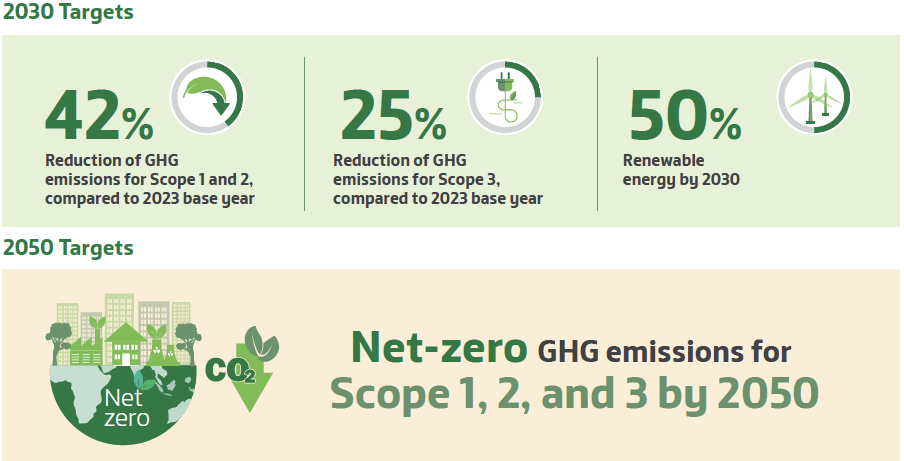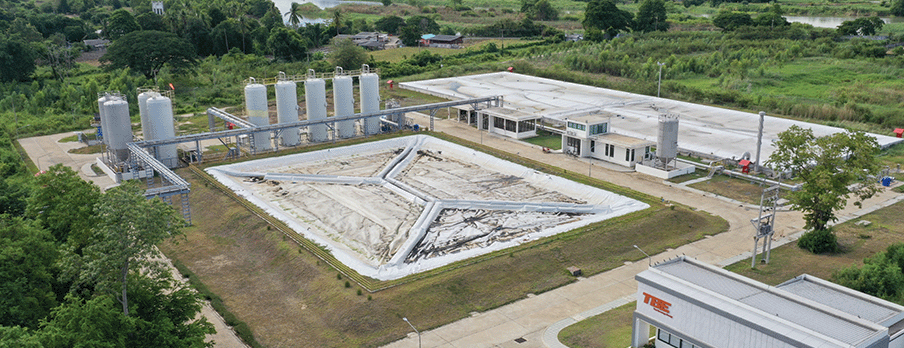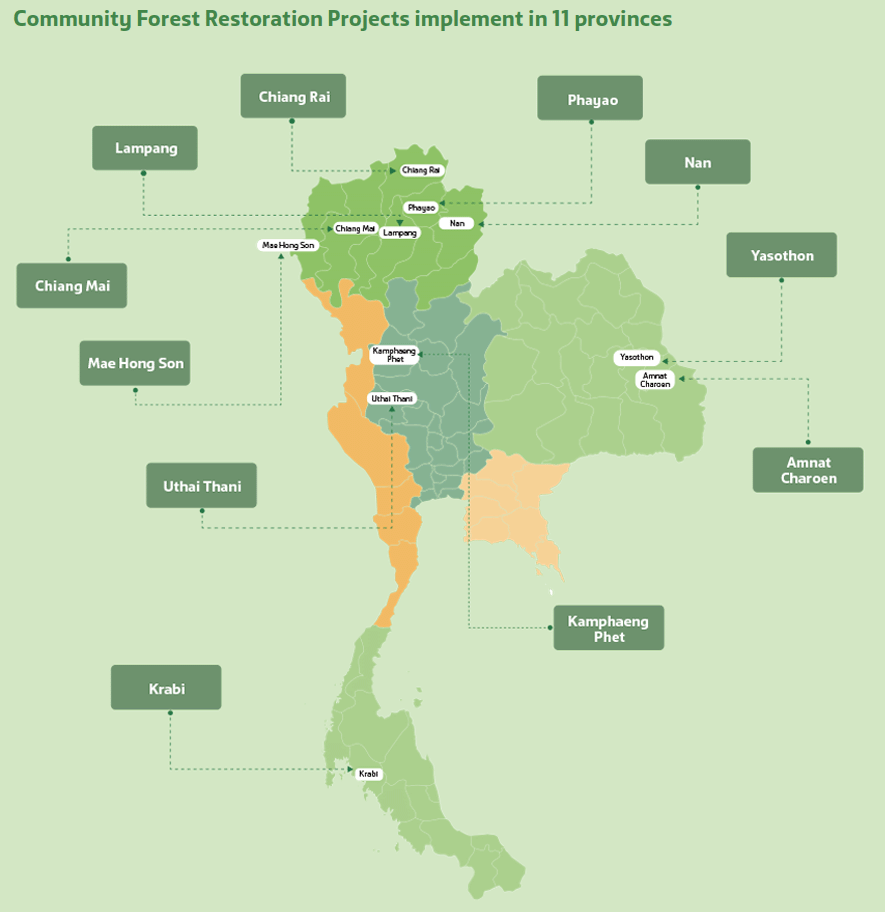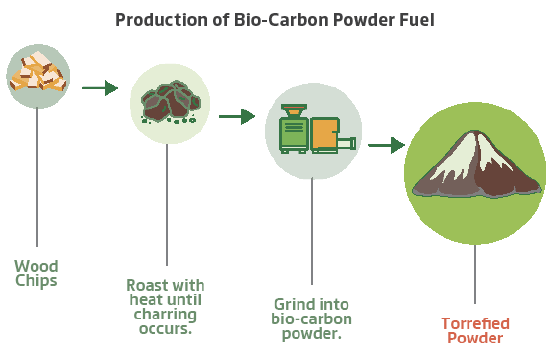Our objective is to transition our operations towards achieving net-zero emissions. We prioritize this goal by placing significant emphasis on managing energy efficiency across our entire value chain. This involves reducing overall energy consumption, elevating reliance on renewable energy sources, and integrating high-energy-efficiency technologies. Collaborating closely with our partners,
we are committed to developing operations with low energy intensity and
implementing effective management strategies for packaging materials and waste.
Recognizing the need to accelerate our actions to address the climate crisis,
we are committed to achieving net-zero greenhouse gases (GHG) emissions
for Scope 1, 2 and 3 by 2050.
ThaiBev’s sustainability strategy has well-defined
Environmental, Social, and Governance (ESG) initiatives and goals, including a clear target to achieve net-zero greenhouse gas (“GHG”) emissions for Scope 1, 2, and 3 by 2050 with quantifiable targets. The “Enabling Sustainable Growth” strategy will enable us to drive sustainable development and resilience across our businesses, protect the environment, support local communities, and enhance governance.
ThaiBev is committed to raising the proportion of
renewable energy usage by increasing investment in innovative low-carbon technologies that contribute to climate change mitigation and adaptation efforts, as well as promoting optimization of overall resource use for maximum efficiency. This approach extends to raising awareness among suppliers and partners about climate change.
We have integrated climate-change risks and opportunities into our strategy and operations to enhance our resilience to climate change, while also enhancing value creation
for the business and connected communities. The company uses this strategy to disclose climate-related financial
risks and opportunities in line with the Task Force on Climate-related Financial Disclosure (TCFD) and International Financial Reporting Standards (IFRS) S2 recommendations, in order to ensure transparency with stakeholders and align with global best practices.
To accelerate emissions reduction and promote low-carbon investment, ThaiBev has adopted an Internal Carbon Pricing (ICP) mechanism to understand how the carbon value of the company’s full carbon footprint is relative to the overall operational costs, profit margins and company turnover, and assess and evaluate the potential impacts of carbon emissions on our businesses and activities, including risks and opportunities to build resilience against climate risk & investing in low carbon technology and other opportunities. The ICP will be applied as a shadow price to support CAPEX investment decisions in environmentally sustainable projects, such as energy efficiency projects, and avoid CAPEX investment decisions in high emission projects. This is also extended to our procurement choices for other purchased goods.
ThaiBev’s implementation strategy includes applying ICP as a shadow price of 20 USD/tCO
2e for investment of more than 10 million THB per project during 2020–2024 and 32 USD/tCO
2e for project investment of more than 5 million THB during 2025–2030.
In alignment with our sustainability goal, ThaiBev’s current policy requires using ICP for all Scope 1 and Scope 2 emission-related investments. This approach enables us to proactively manage potential future regulatory costs associated with carbon pricing mechanisms, such as carbon taxes and emissions trading schemes.
ThaiBev conducts energy audits in each business unit to assess and improve energy efficiency in their processes. This includes exploring ways to reduce energy use through innovative technology or alternative energy sources. Each business unit has an energy management working group to evaluate energy use and seek ways to reduce GHG emissions, including new technologies as well as renewable and alternative energy sources. They report their energy use to the Department of Alternative Energy Development and Efficiency at the Ministry of Energy and voluntarily participate in assessments for compliance with the ISO 50001 standard, which includes energy management certification from third parties. In 2024, 14 production facilities within ThaiBev received ISO 50001 certification.
ThaiBev uses innovation to evolve production processes
in order to gain a competitive advantage and improve
the quality of the working environment for employees. Innovation is also leveraged to reduce impacts on the environment and society.
In 2024, we spent 221.37 million Baht on energy-saving and renewable projects. These projects include expenditures aimed at reducing GHG emissions.
- Renewable Energy Projects: Solar panels, biogas, and biomass projects significantly contribute to reducing reliance on fossil fuels and decreasing GHG emissions.
- GHG Emissions Reduction Projects: These projects include installing LPG boilers to replace fossil fuel usage, thereby decreasing GHG emissions by hundreds of tonnes of CO2e per year.
- Energy Efficiency Projects: Initiatives to decrease energy consumption include installing high-efficiency motor systems and new air compressors.
ThaiBev’s strategic objective for energy management is to transition its operations toward achieving net zero emissions, in alignment with the Company’s strategy of “Enabling Sustainable Growth” to foster long-term resilience across the business while protecting the environment and support local communities.
As part of its long-term sustainability commitment and through proactive energy management, ThaiBev has established the target for non-renewable energy reduction by at least 1% annually. In FY2024, we significantly reduced 142,495 megawatt-hours (MWh) in non-renewable energy used, equivalent to a 7.26% decrease compared to FY2023.
Moreover, ThaiBev’s showed an improvement in energy efficiency within its beverage business group in FY2024, where the energy intensity, a metric that quantifies the amount of energy consumed in relation to a unit of product, was reduced from 241.40 MJ/hL to 218.69 MJ/hL compared to FY2023, reflecting an improvement of 9.41%
These milestones underscore ThaiBev’s ongoing effort to optimize resource utilization, reduce environmental impact and contribute meaningfully to a low-carbon sustainable future. ThaiBev
continues to advance its vision of sustainability while reinforcing its leadership in responsible business practices.
Remark: The target to reduce non-renewable energy consumption by at least 1% annually currently applies to existing operations. For future expansions and/or potential mergers, ThaiBev will assess the baseline and review the target to ensure successful implementation of our sustainability vision.
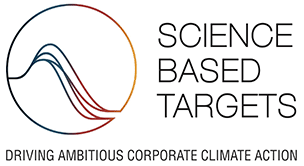
ThaiBev has been verified and declared a certified organization by the Science Based Targets initiative (SBTi), for its short-term GHG emissions reduction target for 2030 and its long-term net-zero GHG emissions target for 2050. The first target is to reduce total GHG emissions by 42% by 2030, covering both direct emissions (Scope 1) and indirect emissions from energy use (Scope 2). Additionally, the company aims to achieve a 25% reduction in indirect GHG emissions across its entire value chain (Scope 3). By 2050, ThaiBev is targeting net-zero GHG emissions for Scope 1, 2, and 3. We aim to achieve our emissions reduction targets by collaborating with our suppliers and partners, working closely to implement new technologies and practices and collectively reduce emissions. Through these partnerships, we ensure that GHG emissions reduction is integrated throughout the value chain. For any residual emissions that cannot be eliminated, ThaiBev will deploy permanent carbon removal solutions. These may include carbon capture and storage (CCS) for relevant industrial processes and verified nature-based removals, such as reforestation and afforestation, ensuring permanence, additionality, and rigorous monitoring and verification by international standards.
Remark: Excluding F&N operations













